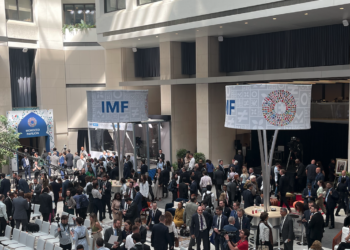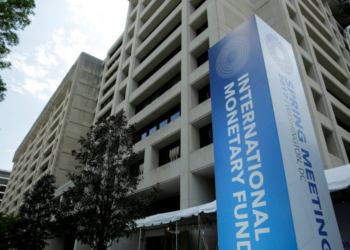The IMF, in its latest Regional Economic Outlook for Sub-Saharan Africa, noted that the progress in economic recovery seen in the second half of 2021, has been jeopardized by the Russian invasion of Ukraine which has triggered a global economic shock that is hitting the region at a time when countries’ policy space to respond to it is minimal to nonexistent.
According to the report, surging oil and food prices are straining the external and fiscal balances of commodity-importing countries and have increased food security concerns in the region. The International Monetary Fund (IMF) also warns Sub-Saharan countries of the possibility of hunger-related social unrest.
For Nigeria, the impact of the Russian Ukraine crisis is coming to worsen an already pathetic situation. The continued rise in prices of food staples keeps pushing many households below the poverty line. The food supply chain disruptions caused by the pandemic translated to an increase in price across food items in the country. Insecurity in the country, ranging from incessant attacks on farmers by herdsmen to banditry and kidnappings, has further worsened the situation, leading to a greater risk of food crisis.
The closure of the borders also contributed to the increase in food prices which got no respite from the reopening of the land borders. According to Fitch, the average Nigerian household spends around 57% of its income on food, and the figure is substantially higher for the 83 million Nigerians who live below the poverty line.
A prolongation of the Russian-Ukraine crisis stands to worsen an already bad situation with respect to the food value chain. Russia’s wheat exports to Nigeria were valued at N37.2bn based on news reports. Data from the United States Department of Agriculture shows that between 2010 and 2020, as the consumption level of wheat rose, production volumes failed to meet up, resulting in a significant rise in wheat imports.
On average, the country produced just 2.1% of the total amount of wheat consumed during that period. Any price increases of flour-based products in local markets impose an additional burden on the earnings of low and middle-income consumers for whom bread represents a major part of their daily diet. Also, the possibility of a significant increase in fertilizer prices may contribute to an increase in food prices.
As things stand, there has been an increase in criminal activities across the country. From kidnappings for ransom to killings for money rituals and other nefarious activities to widespread banditry, it is difficult to completely dissociate the increase in these criminal activities from the widespread poverty and unemployment ravaging the country.
Beyond rising food prices, the Nigerian consumer has also been hit by rising utility costs and the rising cost of imported goods owing to multiple devaluations. In our view, if decisive and strategic steps are not taken to stem the tide of rising food prices, the country may not be too far from the hunger-induced unrests the IMF describes.
CSL Stockbrokers Limited, Lagos (CSLS) is a wholly owned subsidiary of FCMB Group Plc and is regulated by the Securities and Exchange Commission, Nigeria. CSLS is a member of the Nigerian Stock Exchange.












.gif)






